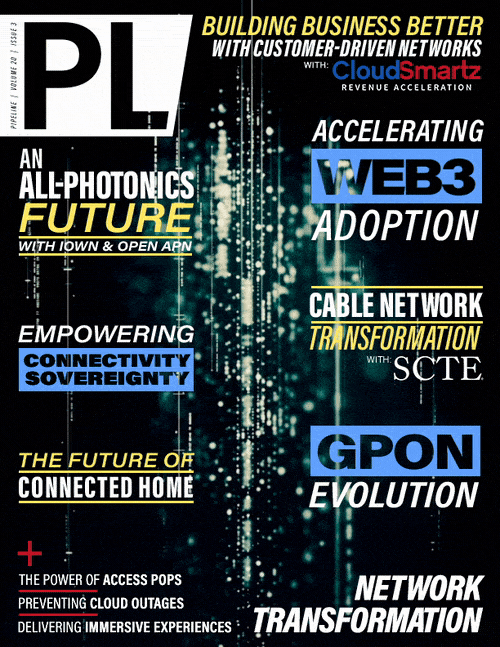Empowering Users Through Proactive
Education and Connectivity Sovereignty
By: Steve Smith

Deploying fiber infrastructure in a new area is a complex endeavor that presents internet service providers (ISPs) with an array of challenges in the form of inquiries from both the community and potential customers. This can range from confusion to fear of the unknown, and it is easy for the public to balk at the important early stages of deployment in a new market. As the digital landscape continues to evolve, it becomes increasingly crucial for an ISP to not only provide reliable connectivity, but also to take proactive steps to educate users on safe and efficient internet usage. Educating and giving end users the ability to control their own internet experience will not only create an ideal customer but will also optimize network performance for all involved. This will overall create a sense of empowerment for the customer, develop efficient users that are loyal to the company, and optimize network connectivity.
The foundation of this proactive education lies in equipping potential and existing customers with the knowledge they need to navigate the complex web of modern internet connectivity. A pivotal revelation in this endeavor is that ISPs can create an environment where the community can educate themselves. ISPs can ensure that users are well-informed about best practices, potential security threats, and the benefits of high-speed fiber connections, all by making the information available in a form that is easily digestible to the user. This not only fosters a sense of trust between ISPs and their customers, but also enables users to take an active role in managing their digital experiences, giving them sovereignty over their connectivity.This concept is particularly important in today's interconnected world, where digital connectivity is a fundamental aspect of daily life and business operations. Network infrastructure has become commoditized and made customer experience (CX) one of the last significant differentiators in the highly competitive telecommunications and internet service provider industries. Having the power to shape and manage one's own online interactions is a strangely rare occurrence, which gives ISPs a unique opportunity to set themselves apart. With so many corporations appearing as faceless entities to customers, having clear and accessible information and providing customers with more control over their connectivity can be game-changing features.
This concept is particularly important in today's interconnected world, where digital connectivity is a fundamental aspect of daily life and business operations. Network infrastructure has become commoditized and made customer experience (CX) one of the last significant differentiators in the highly competitive telecommunications and internet service provider industries. Having the power to shape and manage one's own online interactions is a strangely rare occurrence, which gives ISPs a unique opportunity to set themselves apart. With so many corporations appearing as faceless entities to customers, having clear and accessible information and providing customers with more control over their connectivity can be game-changing features.“Connectivity sovereignty” means more than just having a reliable internet connection; it means having the freedom to customize and optimize their digital experiences. This concept empowers individuals and businesses to tailor their connectivity to their unique needs and preferences, ensuring a seamless and efficient online environment. It acknowledges user rights to data control and security, ensuring that their digital footprint is safeguarded against unauthorized access and data breaches. Whether it's ensuring network security for a family home, managing bandwidth for a remote workforce, or prioritizing specific applications for a business, connectivity sovereignty allows users to take control of their digital world. This not only enhances CX but also fosters loyalty to service providers who prioritize customer empowerment. Offering user-centric services and solutions that meet the diverse needs of their customers is a strategic move that can lead to increased customer satisfaction, reduced churn rates, and a stronger competitive edge in an industry where traditional network services are becoming increasingly commoditized, leading customers to feel like they are just a number in a crowd. Connectivity sovereignty can help them feel individualized and in the driver’s seat of their own experience.
Connectivity sovereignty aligns perfectly with the growing data trends we are now seeing in the world, especially with remote work and digital innovation. Since the pandemic, the world has increased its reliability on the internet for work, education, healthcare, and entertainment, ushering in the need for adaptable and customizable connectivity solutions. With more businesses now embracing AI technologies, we are also going to see an increase in the need for bandwidth, making it even more necessary for businesses to have the power to allocate their connectivity usage for optimal performance of any new technology they wish to embrace. In the context of educational trends, sovereignty plays a pivotal role in student safety. More schools and universities are adapting online learning or using online tools in classrooms, meaning schools and universities need to leverage this concept to provide a safe and conducive online environment for their students and teachers. By allowing educational institutions



















